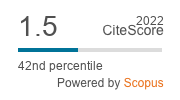Personality has been shown to affect the way individuals think, feel and act, and could impact on the way people behave and perform in a wide variety of activities. Anecdotal evidence suggests that differences in personality exist between equestrians participating in different disciplines and at different levels, but empirical evidence is limited. This study aimed to investigate dispositional tendencies of rider cohorts, in relation to age, nationality, discipline, competitive level, breadth of involvement in different disciplines, and level of risk-seeking behaviour. An online survey was developed, collecting rider demographics relating to nationality, sex, age, competitive level and discipline. A risk scores was assigned to each discipline and an average risk rating was calculated per participant. Personality traits of extroversion, agreeableness, conscientiousness, neuroticism and intellect were measured using the Mini-International Personality Item Pool. Kruskal-Wallis analyses determined differences for personality traits between different survey categories. Univariable analysis of all factors considered informed multivariable logistic regression models to establish how factors including personality traits differed between dichotomous variables: high to low risk discipline, age groups, unaffiliated to affiliated riders and amateur to professional riders. Results showed that riders in their late teens and early twenties considered themselves less agreeable, less conscientious, but more neurotic compared to older generations (P<0.001). Competitive riders considered themselves more conscientious and extroverted than non-competitors (P<0.005). Riders participating in higher risk disciplines considered themselves less agreeable and conscientious (P<0.05). Increases in agreeableness, conscientious and decreases in neuroticism in older riders might predispose them towards a role in coaching and providing support for younger riders. Personality differences between riders of different disciplines and at different competitive levels might be used to help individuals in their choice of equestrian sport and level of involvement. In conclusion, the present study demonstrates the value of identifying personality traits across different rider cohorts.
RESEARCH ARTICLE
The role of personality in equestrian sports: an investigation
I.A. Wolframm Related information
1University of Applied Sciences Van Hall Larenstein, P.O. Box 411, 6700 AK Wageningen, the Netherlands
*ingawolframm@hotmail.
, J. Williams Related information*ingawolframm@hotmail.
2Hartpury College (University of the West of England), Hartpury House, Gloucester, GL19 3BE, United Kingdom
, D. Marlin Related information3David Marlin Consulting Ltd., Unit 10, Oaklands Business Park, Bury St. Edmunds, Suffolk, IP33 2RW, United Kingdom
Comparative Exercise Physiology: 11
(3)- Pages: 133 - 144
Published Online: August 11, 2015
Abstract
Keywords: rider, competition, sport psychology, personality, equestrian sports
2023 Journal Impact Factor
0.9
source: Journal Impact Factor 2023™ from Clarivate™

Institutional Offers
For institutional orders, please contact [email protected].
Purchase Options
-
-
-
A. Byström, H.M. Clayton, E. Hernlund, M. Rhodin and A. Egenvall
-
L. Wright, E. Hernlund, C.T. Fjordbakk, B. Ytrehus, E. Law, M. Uhlhorn and M. Rhodin
-
Jane Williams and David Marlin
-
P.S. Rejeki, A. Pranoto, R.E. Prasetya and S. Sugiharto
-
A. Byström, H.M. Clayton, E. Hernlund, M. Rhodin and A. Egenvall
-
A. Andarianto, P.S. Rejeki, , A. Pranoto, T.W. Aga Seputra, and M. Miftahussurur
-
E.J. Hall and A.J. Carter
-
L. St. George, S.H. Roy, J. Richards, J. Sinclair and S.J. Hobbs



